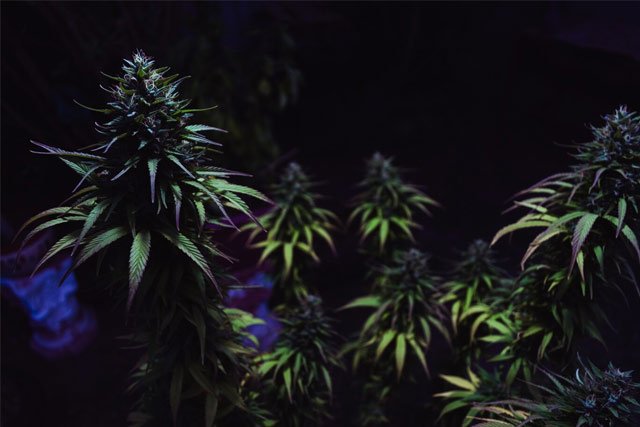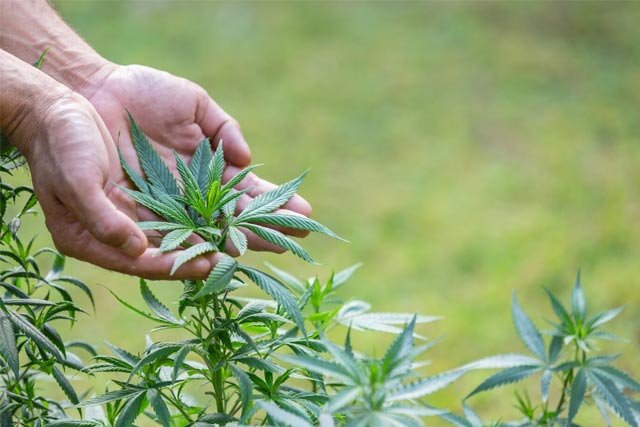Delta-8 THC, formally known as delta-8 tetrahydrocannabinol, is a naturally occurring addictive cannabinoid found in minute amounts in hemp and cannabis plants. This cannabinoid has garnered immense popularity, leading to a surge in products like gummies, vape cartridges, and capsules, available from local dispensaries to convenience stores.
1- Delta-8 Origins

Originating from hemp, delta-8 is often regarded as the milder cousin of the more infamous delta-9 THC found in marijuana. The rise of Delta-8 to prominence is accompanied by claims of inducing a fuzzy, euphoric high akin to marijuana, albeit with fewer addictive side effects.
2- Is Delta-8 Synthetic?

The delta-8 available in the market is predominantly synthesized in laboratories, utilizing cannabidiol (CBD) from hemp plants and various addictive chemicals. This lab-derived form tends to be more potent than its naturally occurring counterpart. A notable concern arises from the lack of FDA regulation in the production process, potentially leading to the use of harmful chemicals.
3- The World of Cannabinoids: A Primer

Cannabis plants boast over 100 chemical substances known as cannabinoids, with THC and CBD being the primary players. While THC is renowned for its psychoactive effects, CBD offers therapeutic benefits without inducing a high. Some cannabinoids have received FDA approval for medical applications, including seizure management and alleviating chemotherapy-induced nausea.
4- Delta-8 vs. Other Cannabinoids: Unraveling the Differences

4.1. Delta-8 vs. Delta-9
It is often hailed as “marijuana lite” due to its structural similarity to delta-9 THC. While delta-8 produces a milder high with fewer side effects, it still influences mood, thoughts, and behavior.
4.2. Delta-8 vs. CBD
In comparison to CBD, which lacks psychoactive properties, delta-8 can induce a high. CBD is currently being studied for various health issues, while delta-8’s therapeutic potential remains largely unexplored.
4.3. Beyond Delta-8: Exploring Delta-10 and HHC
Delta-10 THC, a relative of delta-8 and delta-9, is shrouded in mystery regarding its potential benefits. Hexahydrocannabinol (HHC), akin to delta-8, is derived from hemp and is known for a more intense high, resembling delta-9 THC.
5- How to Use Delta-8: Exploring the Options

5.1. Edibles (Gummies, Brownies)
Edibles offer a discreet and tasty way to consume delta-8. From fruity gummies to delectable brownies, these products come in various forms and flavors. It’s crucial to start with a low dosage, especially with gummies, as the exact delta-8 content may vary. Manufacturers recommend waiting up to 2 hours to gauge the effects before considering additional consumption. Keep these treats away from children and pets to prevent accidental ingestion.
5.2. Liquid Extracts (Tinctures)
Tinctures, liquid extracts of delta-8, provide a versatile consumption method. Users can place a few drops under the tongue or add them to food and beverages. This method allows for precise dosage control and faster absorption into the bloodstream. Tinctures are popular among those seeking a customizable and controlled delta-8 experience.
5.3. Inhaled Concentrates (Vape Oil, Wax)
Inhaled concentrates, such as vape oil and wax, offer a quick and efficient way to experience the effects of delta-8. These products are used with vaporizers, heating the concentrate to produce inhalable vapor. It’s essential to exercise caution, as vaping any substance is considered unsafe, particularly for teens and young adults. The levels of THC in vape products can vary between brands.
5.4. Smoked (Buds, Flowers)
Traditional smoking methods involve inhaling delta-8 by smoking buds or flowers. This method provides a familiar experience for those accustomed to smoking cannabis. However, individuals concerned about potential health risks associated with smoking might not prefer it.
5.5. Capsules
For those seeking a measured and convenient dosage, delta-8 capsules are available. Similar to traditional medication, individuals take capsules orally, providing a controlled and straightforward method of consumption. This option is suitable for users who prioritize precision and consistency in their delta-8 experience.
5.6. Topical Applications (Creams, Lotions, Patches)
Topical applications introduce a unique way to experience delta-8’s potential benefits. Creams, lotions, and patches infused with delta-8 can be applied directly to the skin. This method is favored by individuals seeking localized effects, such as pain relief or targeted relaxation.
6- Understanding the Effects: A Journey into Delta-8’s Impact on the Body

6.1. The Psychoactive Journey
Delta-8 THC, chemically akin to delta-9 THC, seamlessly interacts with the endocannabinoid system (ECS), primarily through CB-1 receptors in the brain. This interaction influences mood, hunger, body temperature, pain perception, and alertness. The delta-8 high exhibits reduced intensity compared to delta-9 THC.
6.2. Brain Chemistry Unveiled
Due to limited research on delta-8, the long-term effects on brain chemistry remain elusive. However, cannabinoids, in general, are believed to temporarily elevate dopamine levels, the “feel-good” chemical in the brain.
7- Risks and Side Effects: Navigating the Unknown

7.1. Limited Research, Abundant Uncertainties
Delta-8’s impact on overall health remains largely unexplored. While some users claim benefits such as nausea relief and improved mental health, experts caution against relying on unproven claims. Short-term side effects include confusion, anxiety, drowsiness, and hallucinations.
7.2. Short-Term vs. Long-Term Risks
- Short-Term: If you experience adverse reactions, contact your doctor immediately or seek emergency medical attention.
- Long-Term: Research on delta-8’s long-term effects remains limited, but studies on delta-9 THC suggest potential cognitive impacts with prolonged use.
7.3. Hidden Dangers: Impurities in Delta-8 Products
A small study uncovered potentially harmful substances, including lead and mercury, in some delta-8 vape oils. The lack of regulation raises concerns about the purity and safety of delta-8 products.
8- The Legal Landscape: Navigating Delta-8’s Legality

8.1. Legal Gray Areas
Delta-8 occupies a legal gray area, benefiting from the federal farm bill that legalized hemp-derived products. However, this legislation does not explicitly mention delta-8, leading to a lack of clarity and oversight. Some states are beginning to restrict or ban delta-8 due to safety concerns.
8.2. Legal Risks
While delta-8 is legal in many states, it’s crucial to understand the legal risks associated with its possession, manufacturing, or use. Even in states where it’s legal, driving under the influence of delta-8 could lead to legal consequences.
Conclusion: Navigating the Delta-8 Landscape
In conclusion, the allure of delta-8 THC comes with its share of mysteries and potential addictive risks. Urge consumers to approach it cautiously, considering the lack of regulation, potential impurities, and uncertainties surrounding its long-term effects. As with any substance, moderation and informed decision-making are essential for a safe and enjoyable experience.




